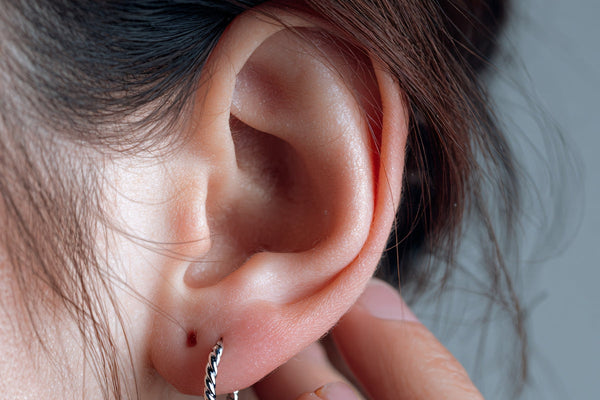
Vestibular neuritis is an inner ear condition that affects your balance and can cause sudden dizziness or vertigo. It occurs when the vestibular nerve - the nerve that sends balance information from the inner ear to the brain - becomes inflamed, often after a viral infection.
Although the symptoms can feel intense at first, most people recover fully with time and the right support. At Leightons, we’re here to help you understand your symptoms, monitor your ear health, and support your recovery every step of the way.
What is vestibular neuritis?
Vestibular neuritis is caused by inflammation of the vestibular nerve, which helps your brain interpret balance and movement. When this nerve becomes swollen, it disrupts the signals sent between your inner ear and your brain - leading to dizziness, vertigo, and balance problems.
Unlike some other inner ear conditions, vestibular neuritis typically does not affect hearing, as the cochlea (the part of the ear responsible for hearing) remains healthy. When hearing loss is present, it may instead indicate a related condition such as labyrinthitis.
What causes vestibular neuritis?
The most common cause of vestibular neuritis is a viral infection, such as a cold or flu, that spreads to the inner ear. Less commonly, it can result from:
- Bacterial infections
- Inflammation following respiratory illness
- Immune system reactions to infection
- Occasionally, stress or fatigue, which may slow recovery
It’s important to remember that vestibular neuritis isn’t contagious - it’s the underlying viral infection that triggers inflammation.
Common symptoms of vestibular neuritis
Vestibular neuritis usually comes on suddenly, often within hours. Symptoms can be quite severe at first but tend to improve over time. Common signs include:
- Sudden dizziness or vertigo (a spinning or swaying sensation)
- Loss of balance or unsteadiness
- Nausea or vomiting
- Difficulty focusing eyes or walking straight
- Worsening symptoms with head movement
Most people experience the most intense dizziness in the first few days, followed by gradual improvement as the brain and inner ear recalibrate.
How is vestibular neuritis diagnosed?
A GP or ENT specialist can diagnose vestibular neuritis by reviewing your symptoms and performing balance or hearing tests. Tests may include:
- Otoscopy - to examine the ear and rule out infection
- Hearing test (audiogram) - to check for hearing loss
- Balance testing (VNG) - to assess how your eyes and ears coordinate
- In some cases, MRI or CT scans to confirm diagnosis and exclude other causes
Early diagnosis helps guide recovery and ensures that other inner ear conditions are ruled out.
Treatment and recovery
There’s no specific cure for vestibular neuritis, but treatment focuses on relieving symptoms and supporting recovery. Common approaches include:
- Medication - to control dizziness, nausea, or inflammation (antihistamines, anti-nausea medicine, or corticosteroids)
- Vestibular rehabilitation therapy (VRT) - balance exercises designed to retrain your brain to adapt to new balance signals
- Rest and hydration - essential during the acute phase
- Gradual movement - gentle physical activity helps the brain relearn balance control
Most people recover within a few weeks, although mild unsteadiness can linger for longer. Early movement and balance exercises often speed up recovery.
Living with and recovering from vestibular neuritis
Recovering from vestibular neuritis can take patience. You may feel unsteady or sensitive to movement at first, but there are simple steps to support your recovery:
- Move slowly and avoid sudden head movements
- Use stable furniture for support while walking
- Stay hydrated and rest as needed
- Resume gentle activity once dizziness improves
- Avoid driving until vertigo has completely subsided
If symptoms persist for more than a few weeks, a hearing assessment can help identify any lingering effects.
How Leightons can help
At Leightons, we provide professional ear health checks and free hearing assessments to support people recovering from inner ear conditions like vestibular neuritis. Our audiologists can:
- Examine your ears to ensure they’re healthy and infection-free
- Perform free hearing tests to check for any related hearing changes
- Offer referrals to ENT specialists for diagnosis and treatment
- Provide advice on balance and hearing recovery to help you feel more confident
We’re here to help you understand your symptoms, monitor your recovery, and protect your hearing long-term.
Book your free hearing test today and take the first step toward balanced, comfortable hearing.







